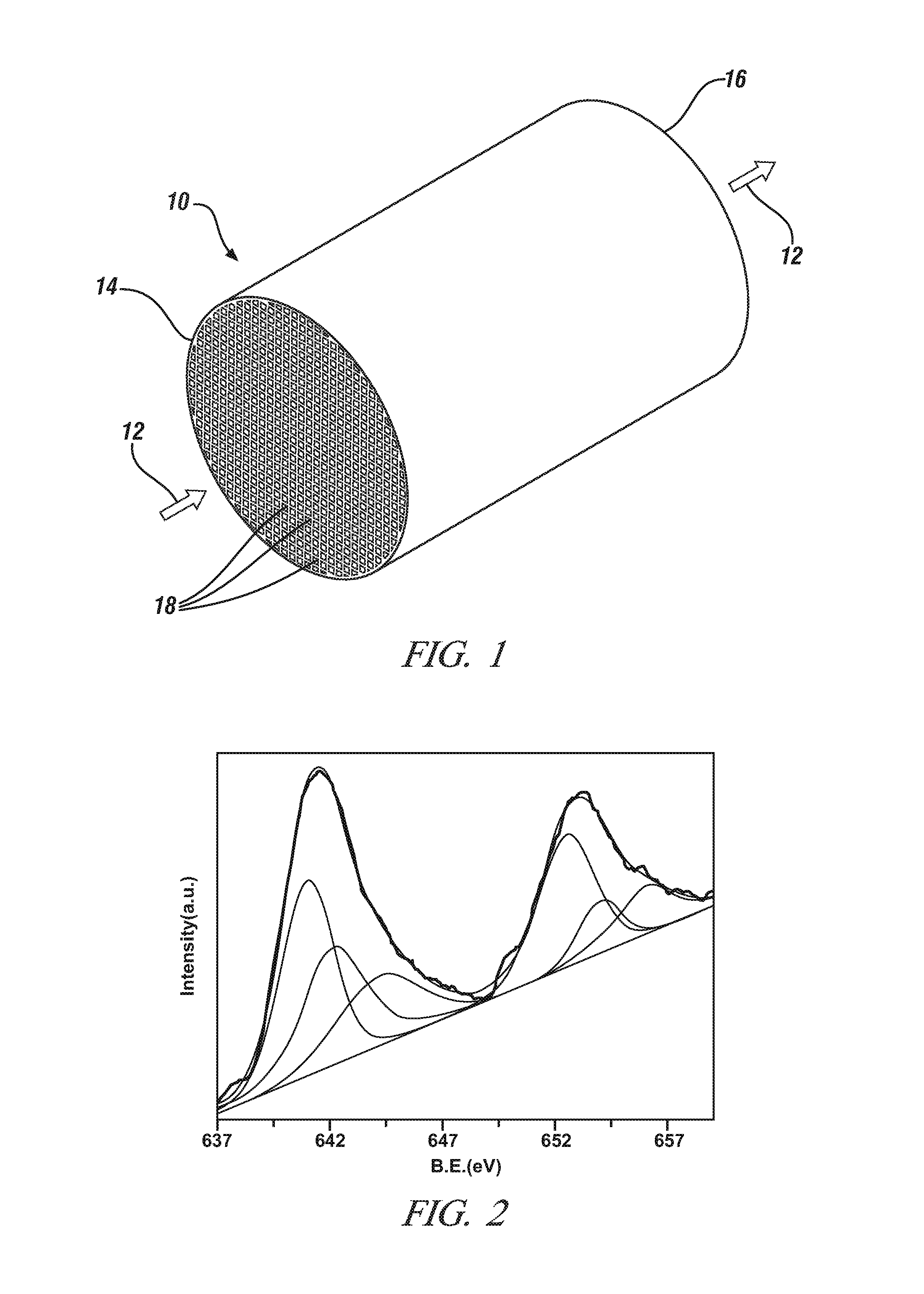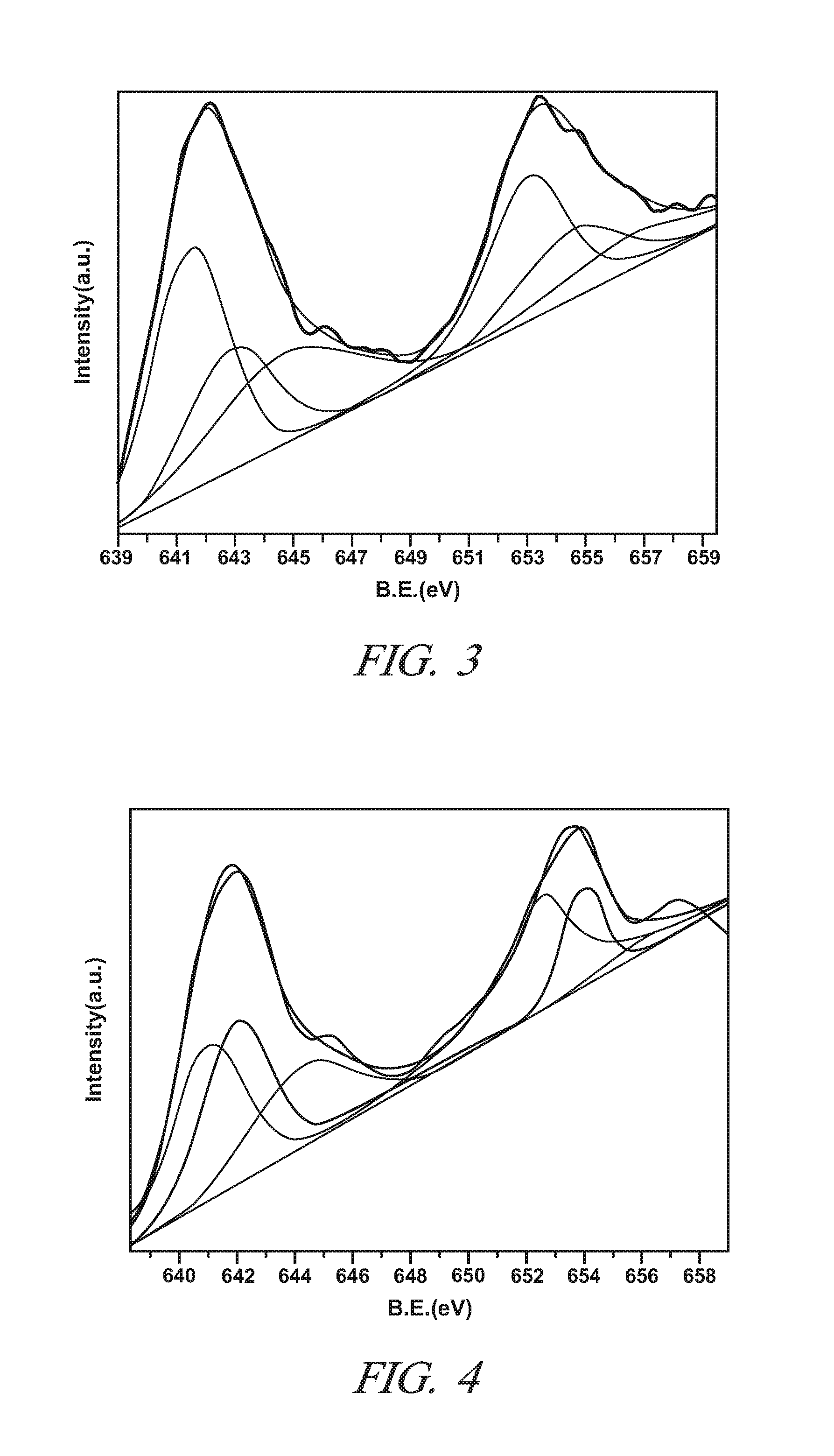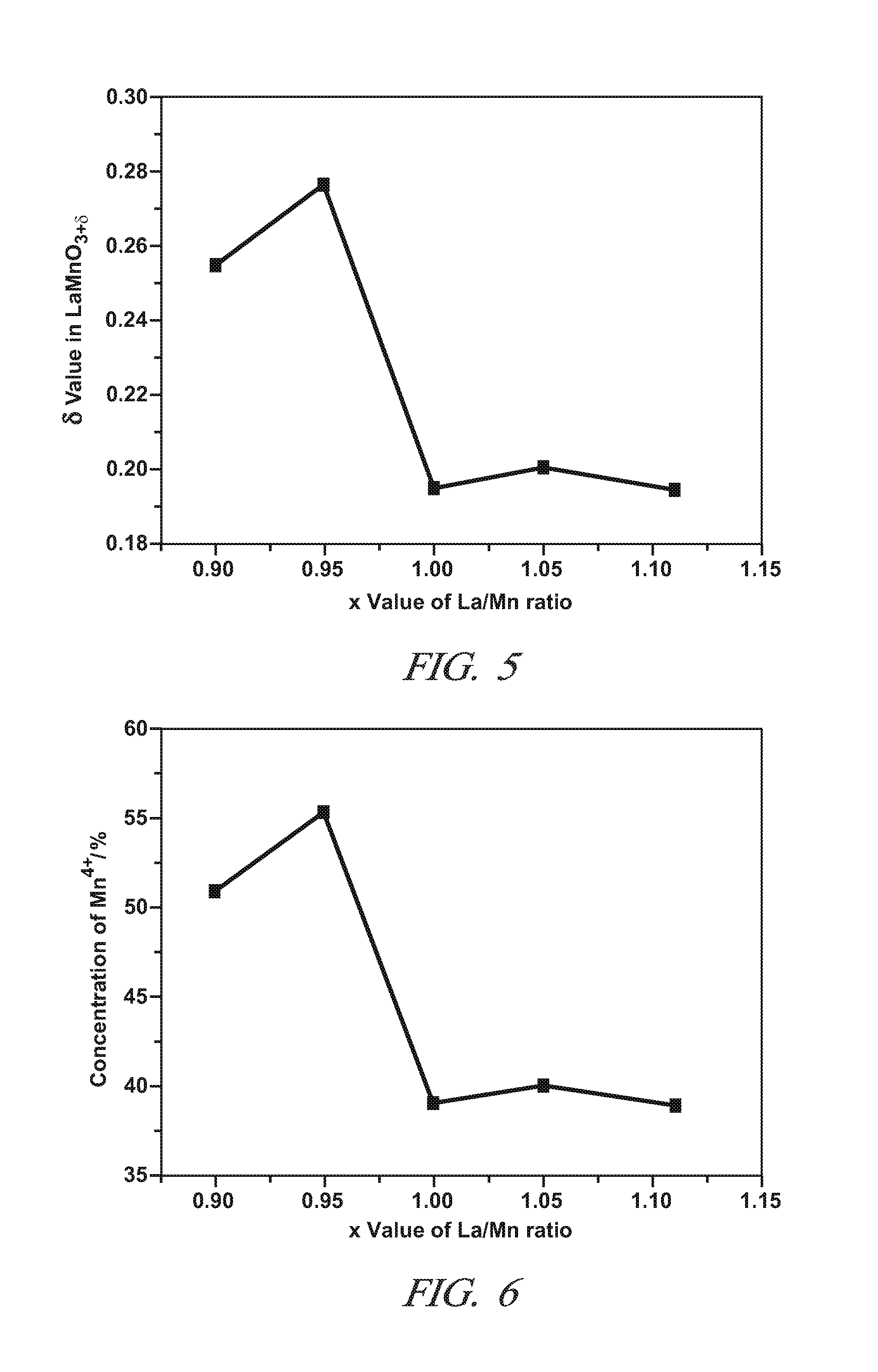Non-stoichiometric perovskite oxide oxidation catalyst for oxidizing NO to NO2
a perovskite oxide and catalyst technology, applied in the direction of metal/metal-oxide/metal-hydroxide catalysts, machines/engines, arsenic compounds, etc., can solve the problems of poor thermal durability, inability to maintain or even use the stoichiometric mixture of air and fuel, and high cost of platinum and platinum-based alloys. , to achieve the effect of increasing the amount of active oxygen, reducing the molar ratio of lanthan
- Summary
- Abstract
- Description
- Claims
- Application Information
AI Technical Summary
Benefits of technology
Problems solved by technology
Method used
Image
Examples
example
[0047]This Example demonstrates the properties and the NO to NO2 catalytic oxidative activity of LaXMnOY perovskite oxide particles in which the lanthanum and manganese metal cations are present in a non-stoichiometric molar ratio (“X”) of 0.85 to 0.95. The value of Y in this Example is sometimes replaced by the symbol “3+δ” with “δ” ranging from 0 to 0.30. This designation is merely an alternative expression for Y that focuses on variations in the unit cell oxygen content at the tenths and hundredth decimal locations. The subscript “Y” and “3+δ” represent the same numerical range of 3.0 to 3.30 for all intents and purposes. The value of “δ” is sometimes referred to as the over stoichiometric coefficient.
[0048]Five samples of single phase LaXMnOY perovskite oxide particles with different molar ratios of La to Mn were prepared (X=0.9, 0.95, 1.0, 1.05, and 1.11) by the citric acid method using metal nitrates of Lanthanum and manganese. For each sample, the appropriate amounts of La(NO...
PUM
| Property | Measurement | Unit |
|---|---|---|
| diameter | aaaaa | aaaaa |
| diameter | aaaaa | aaaaa |
| mass ratio | aaaaa | aaaaa |
Abstract
Description
Claims
Application Information
 Login to View More
Login to View More - R&D
- Intellectual Property
- Life Sciences
- Materials
- Tech Scout
- Unparalleled Data Quality
- Higher Quality Content
- 60% Fewer Hallucinations
Browse by: Latest US Patents, China's latest patents, Technical Efficacy Thesaurus, Application Domain, Technology Topic, Popular Technical Reports.
© 2025 PatSnap. All rights reserved.Legal|Privacy policy|Modern Slavery Act Transparency Statement|Sitemap|About US| Contact US: help@patsnap.com



